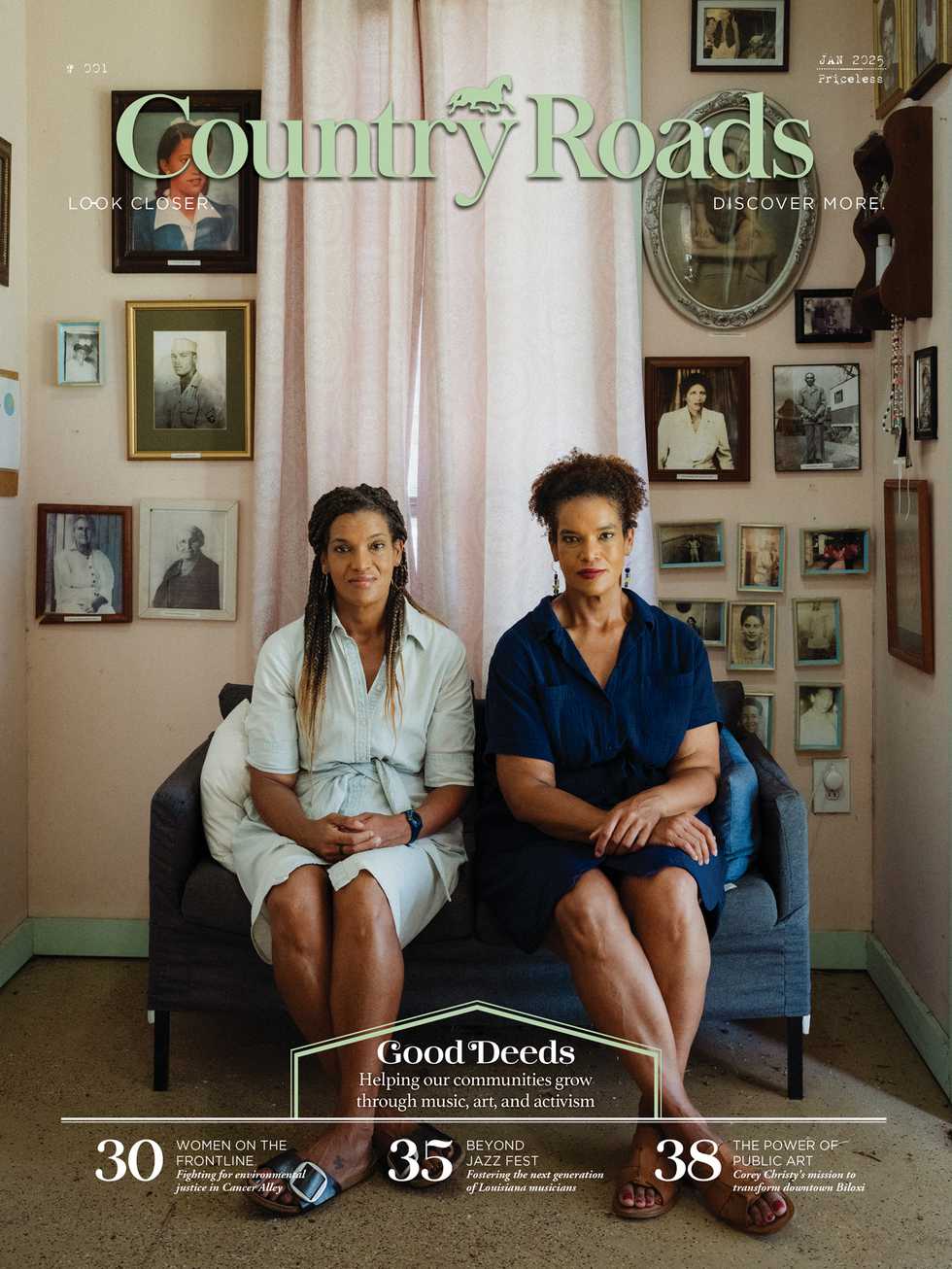
Photo by Paul Kieu.
The 2022 Building Institute project, HOUSEofCARDS.
Charles Chaisson had been dreaming of tornadoes—sudden, destructive, and increasing in frequency in his native New Orleans. “When people are afraid, it can go a lot of different ways,” he said. “There can be a positive response or a negative response. And I think I would like my fears to help me try to work with other people to do some good things.”
Chaisson, an illustrator who has worked in New York and New Orleans, took an activist response. He created Levity, a nonprofit sustainability research think tank and campground to be set on five acres in Arnaudville. At the incubator and research center, Chaisson’s hope is to bring together artists, scientists, and innovators in spaces designed with sustainability in mind.
The first step to making Levity a reality will be building out the space, and that’s where Geoff Gjertson and the University of Louisiana at Lafayette’s Building Institute come in. The Building Institute has developed numerous projects focused on sustainability and cultural preservation in Louisiana. One such project was the 2022 HOUSEofCARDS, created for the Honey Locust artist retreat in Arnaudville, where Chaisson was a resident. He asked Gjertson if he’d be interested in collaborating, and soon enough, like a growing number of artists attracted to the Louisiana prairie, Chaisson moved full time to Arnaudville.
[Read about the HOUSEofCARDS project in this story from our 2023 Deep South Design issue.]
Collaborating with Levity fits into the ethos of the Institute, which Gjertson has helped run since 2003. The program requires architecture students to take a hands-on approach to implementing real world projects.
“To really know how to design something, you have to know how to make it,” Gjertson said, echoing Frank Lloyd Wright’s philosophy. At the Building Institute, students learn construction, logistics, and management, and perhaps most importantly, the necessary collaboration that makes for successful work. “Really no architect ever does anything on their own. Nothing is built by one person,” Gjertson said.
The Building Institute’s third year students will get together this fall for a “charette,” or workshop to brainstorm ideas for the project’s master plan, and then start construction with subcontractors in the spring. Sustainability will be at the core of Levity. The team is considering using materials like recycled polymer and ways to best utilize “gray” water, or lightly used water that can be repurposed. Chiasson notes the synergy with other nonprofits in the area, such as the Acadiana Native Plant Project, which focuses on the ecological health of water and revitalizing the prairie. There’s also Les Deux Bayou STEAM Park, a sister nonprofit to Levity that will facilitate the campground and outdoor entertainment on the property.
While the partnership between Levity and the Building Institute is built on a mutual desire for sustainability and innovation to combat climate uncertainty, at its core is optimism.
“I’m really just excited to get people from different backgrounds together to collaborate and see what they come up with and co-create,” Chaisson said.
Chaisson chose the name “Levity” from his family’s ability to find joy during hard times. When Chaisson would visit his family in Lafayette, “I would just laugh so much, that hearty laugh where you’re in tears. We need lightheartedness and we need laughter to help us get through challenging times … as a society we’re kind of in a very challenging point in time and space, and I think there needs to be some lightheartedness and joy in how we create new systems to survive it, adapt to it.”
Gjertson echoed Chiasson’s enthusiasm: “That’s one of the exciting things about [this project], is that he is so optimistic.”

